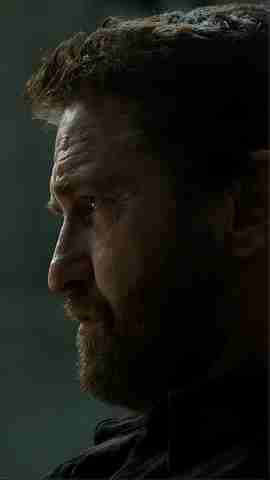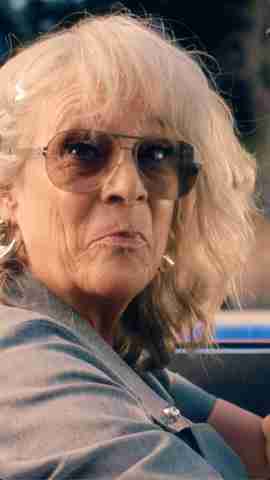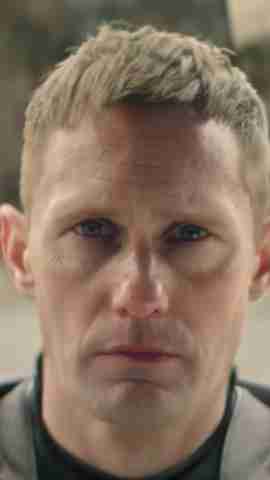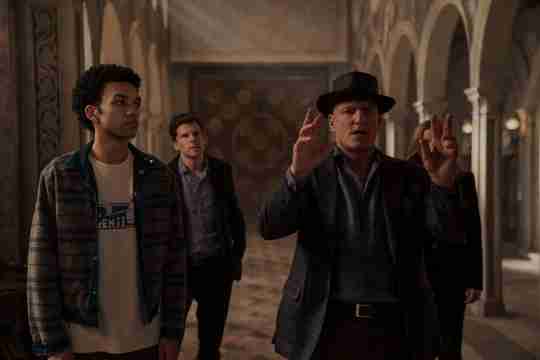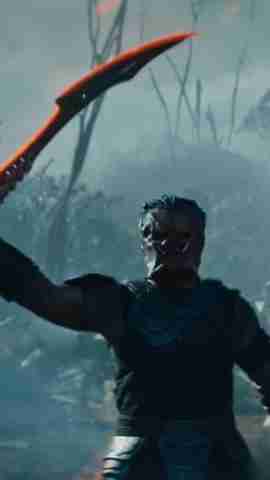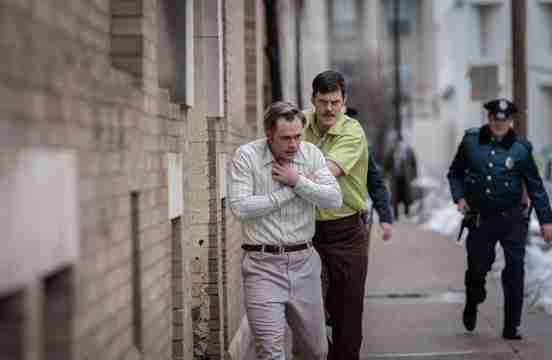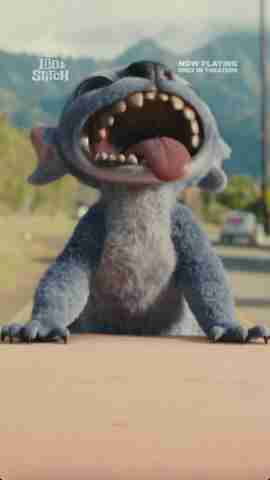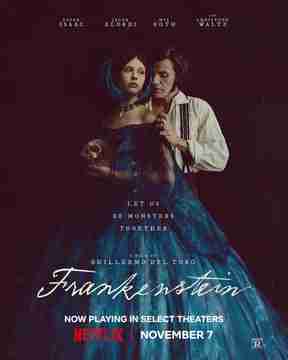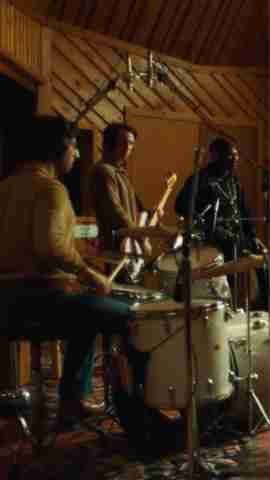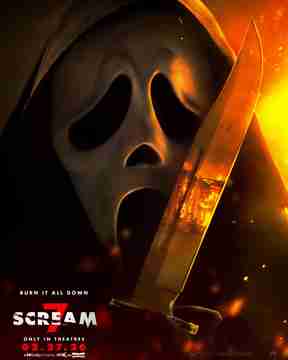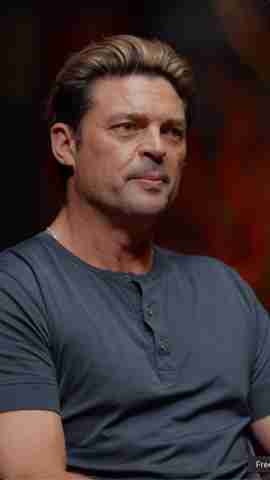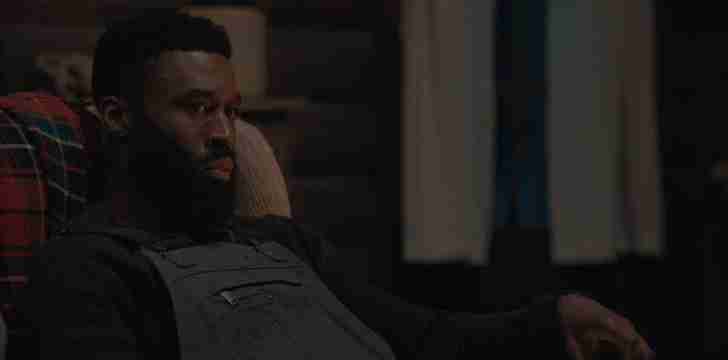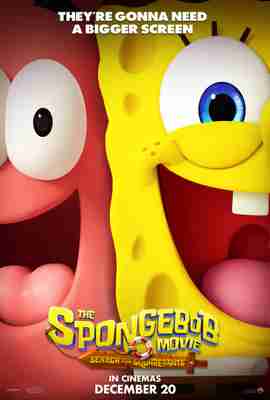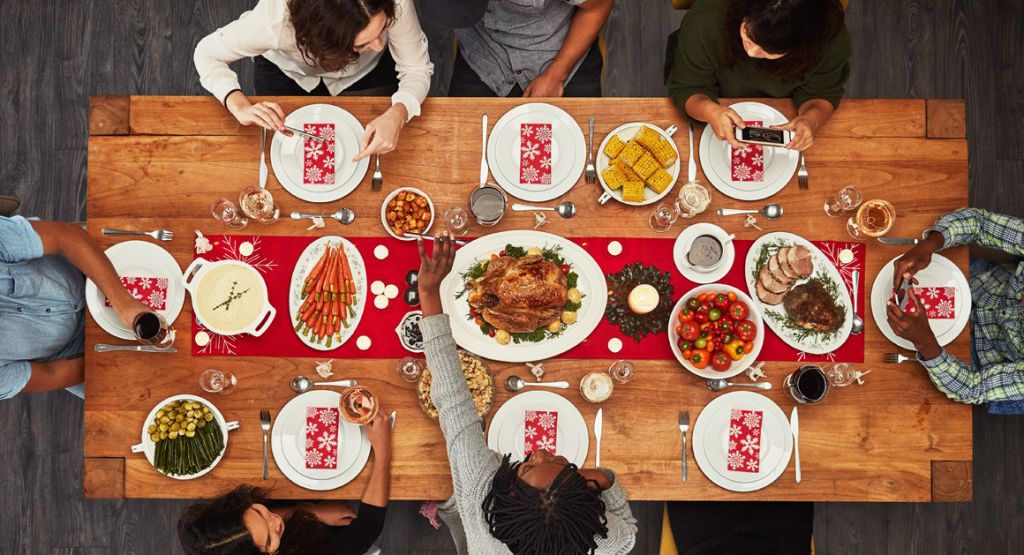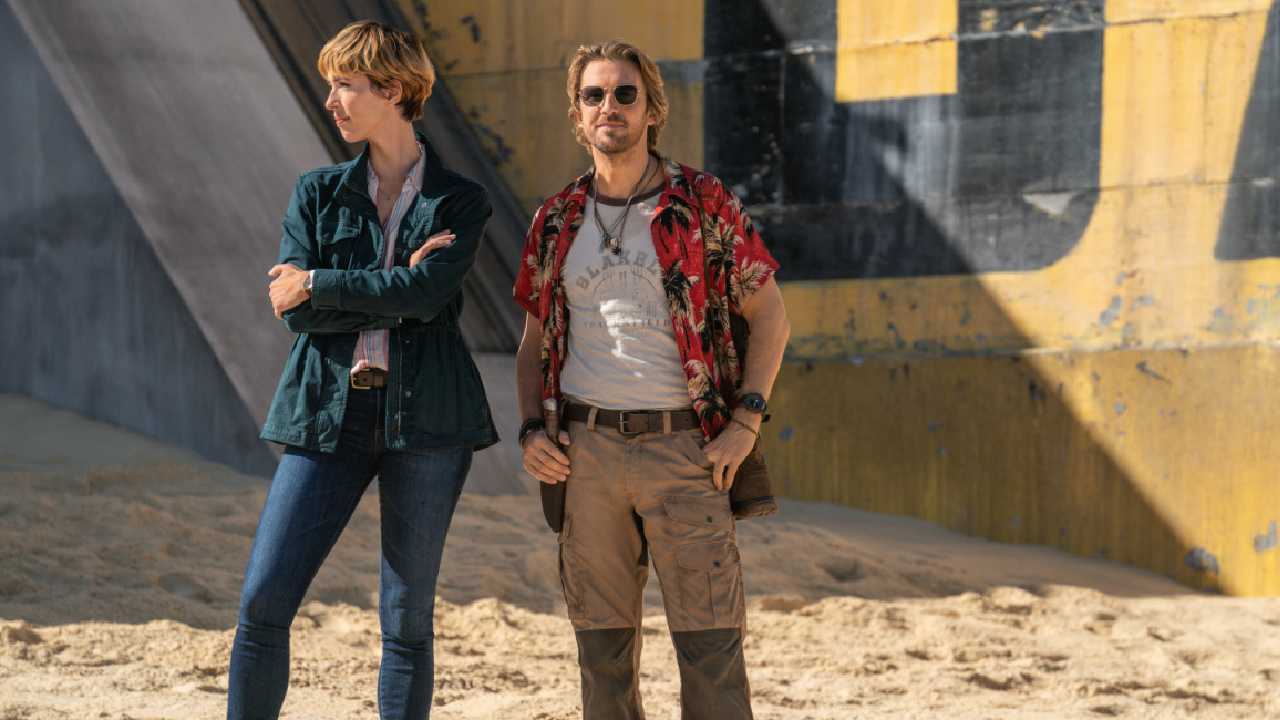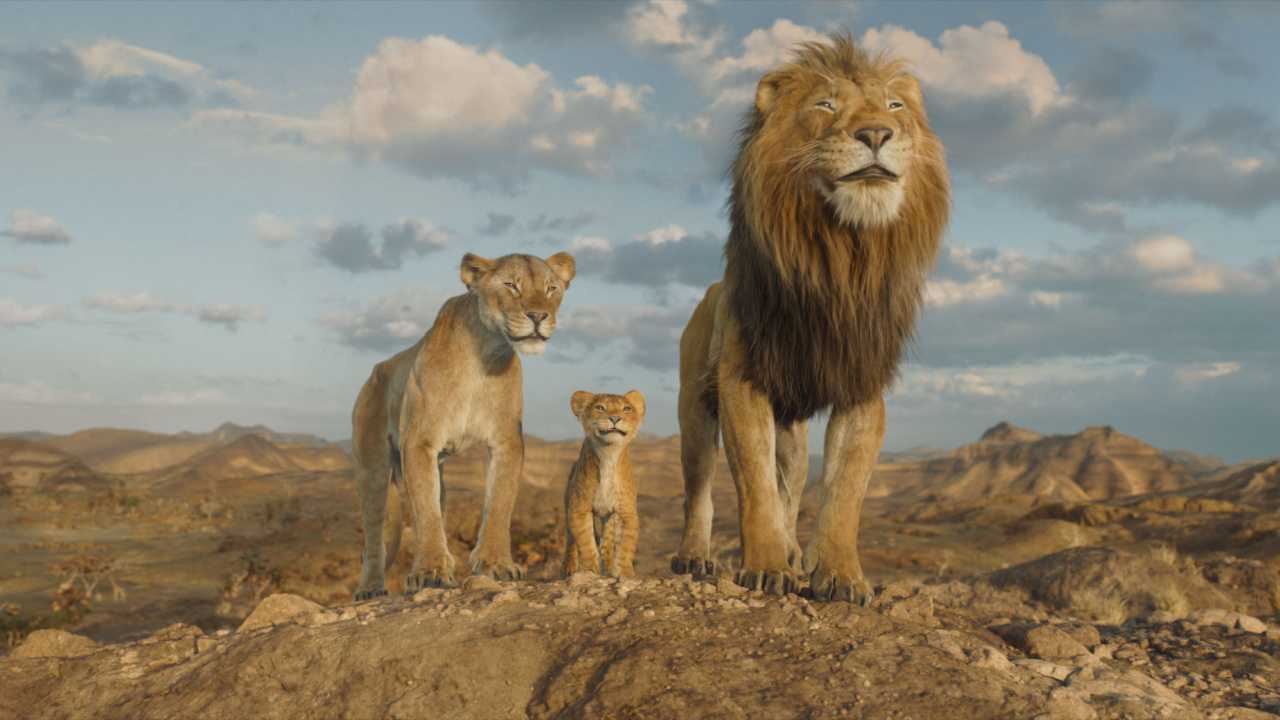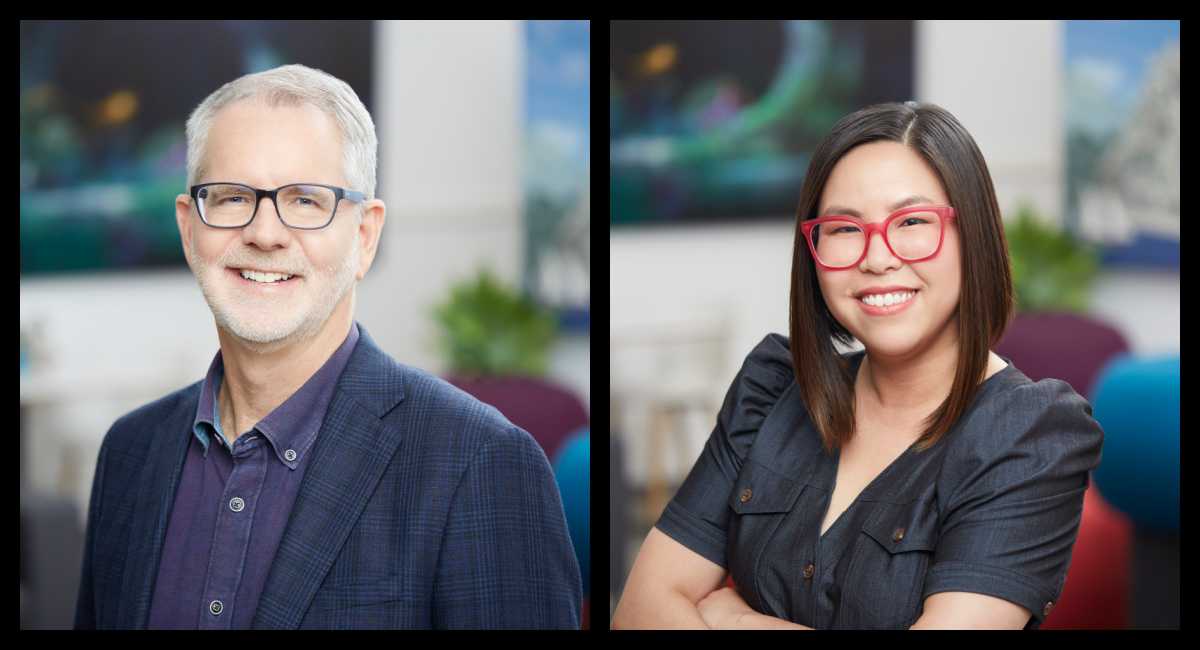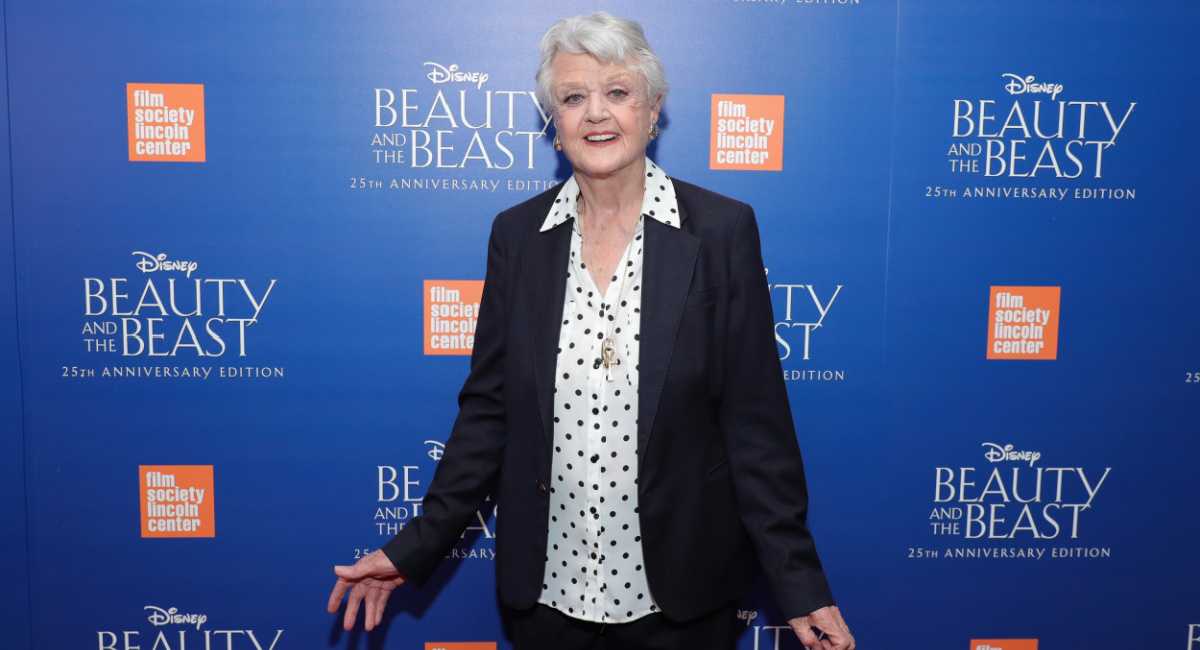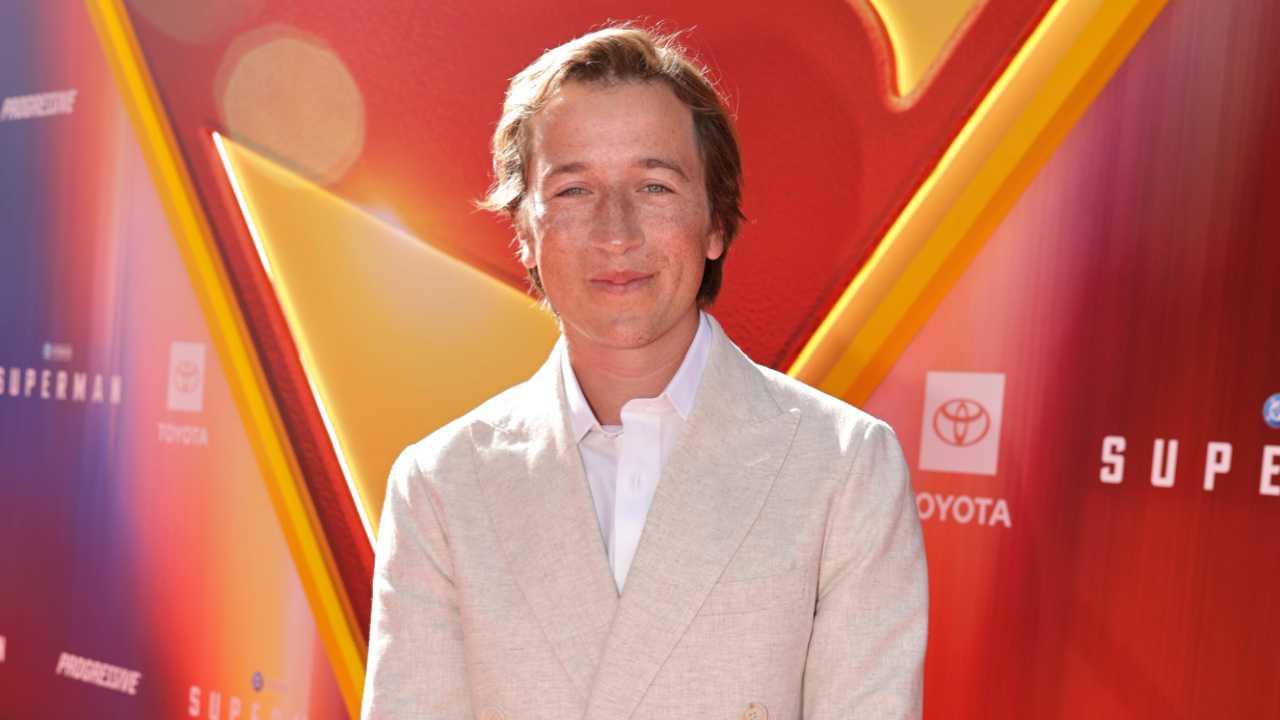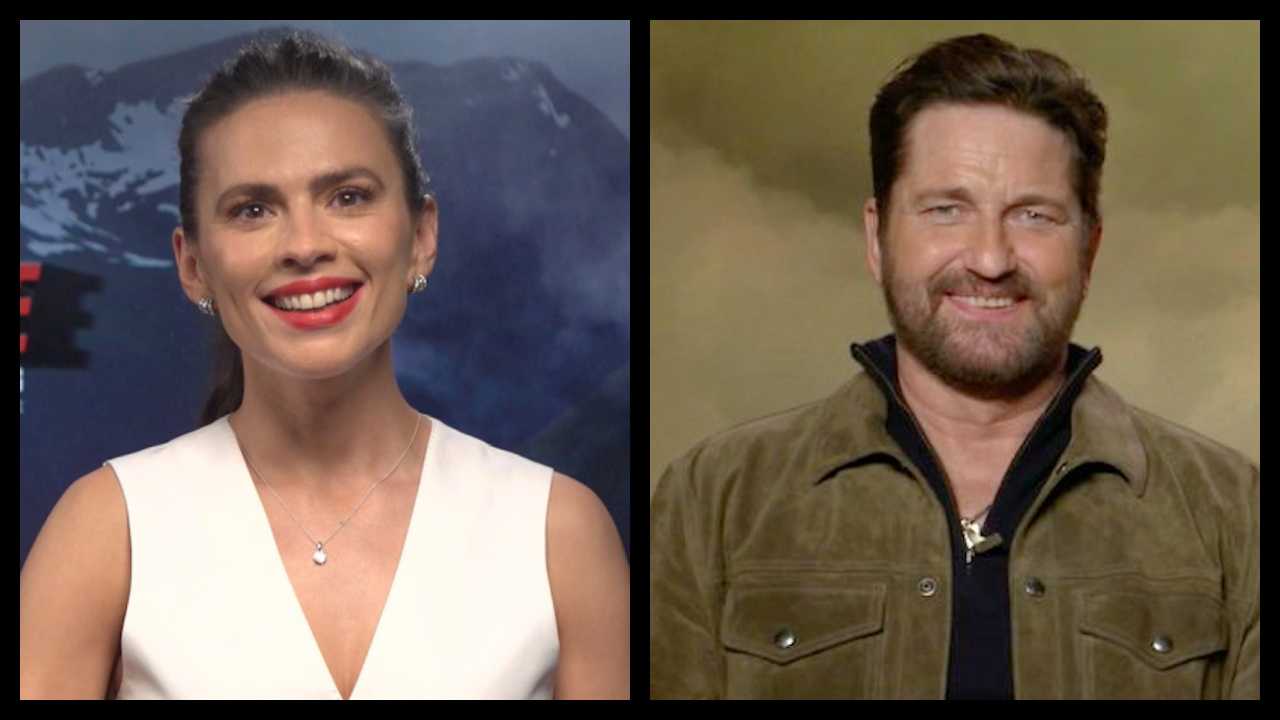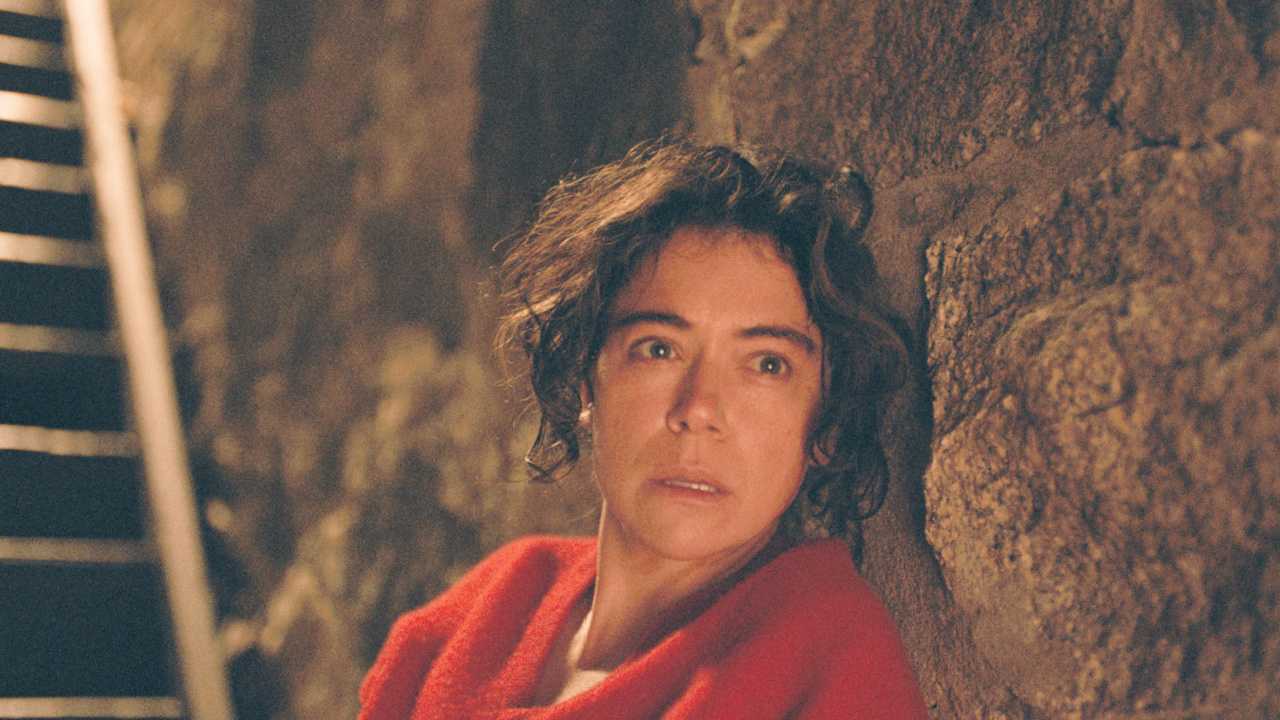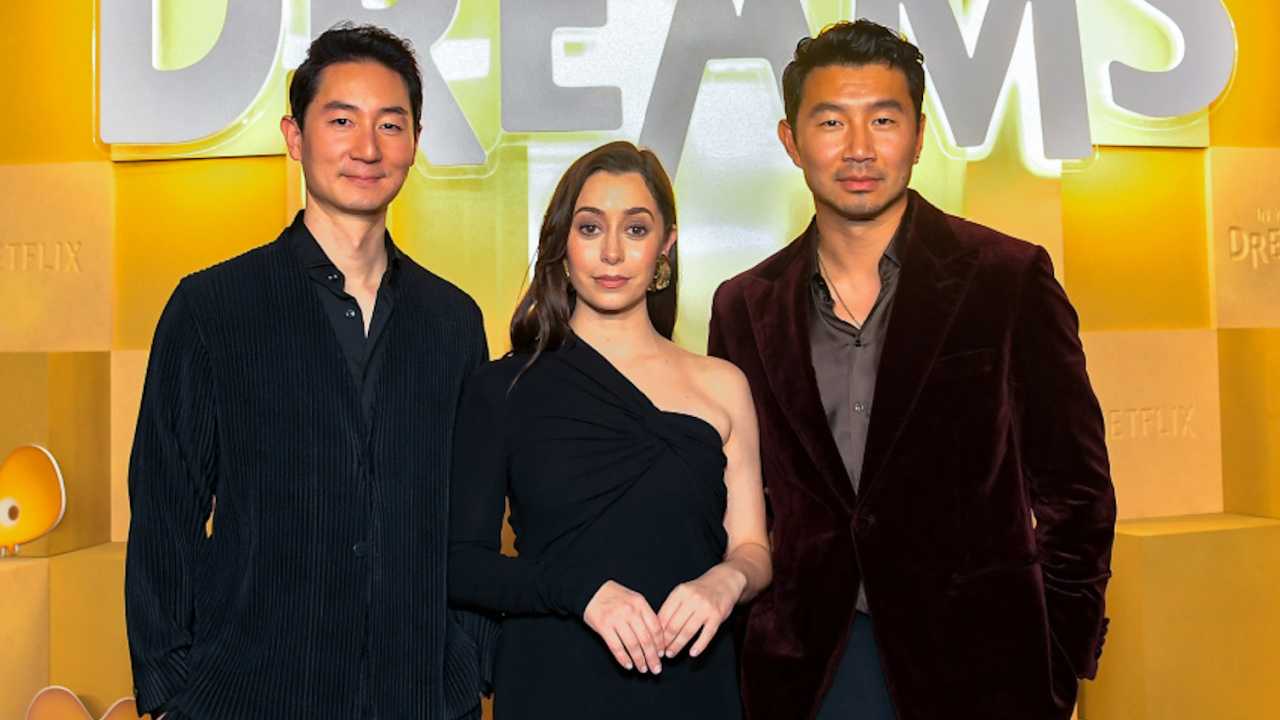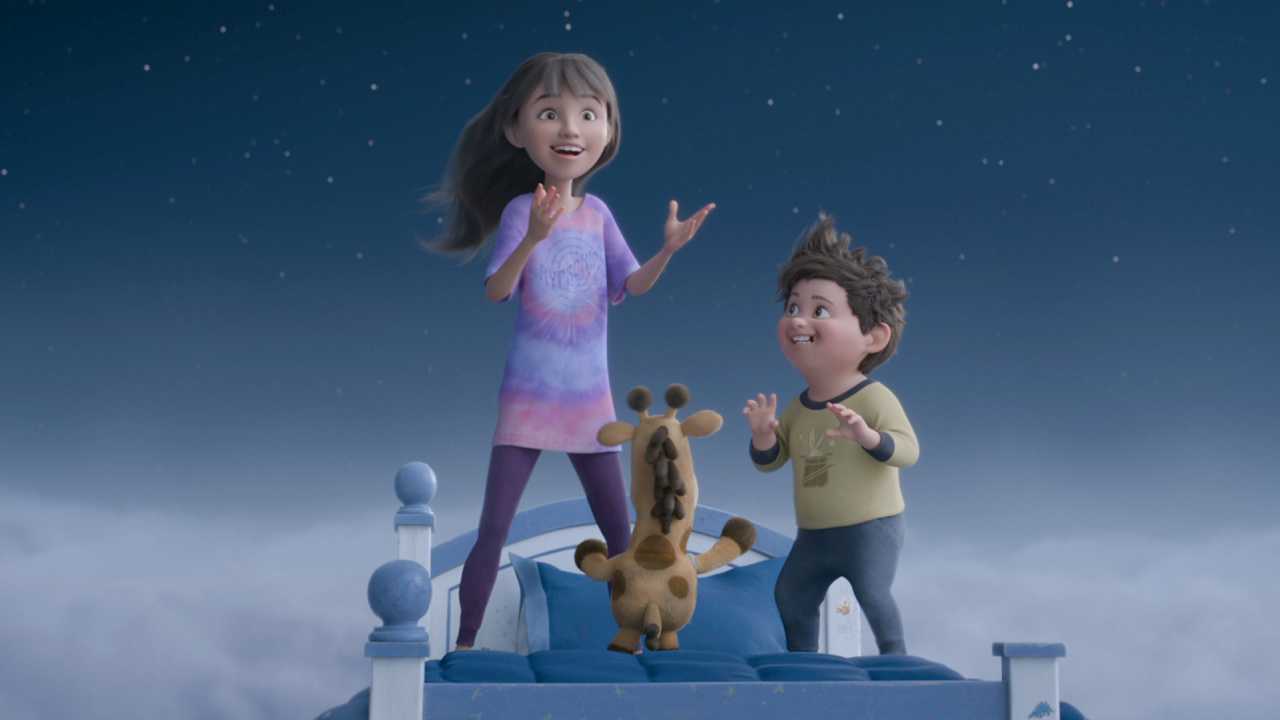John Legend Loves How 'Underground' Depicts a Painful History and the Ability to Overcome
John Legend is starting to make living up to that lofty last name look easy.
On both the personal and the professional front, Legend has been enjoying the kind of moment pop artists aspire to but can often only dream of. After building a monumental career in a relatively short period of time -- with major mile markers including multiple platinum records, numerous Grammys, both a Golden Globe and an Academy Award for Best Original Song for "Selma's" "Glory" and a phenomenal mega-hit in the form of "All of Me" -- the singer-songwriter has been riding a major wave and adding even more titles -- including actor and producer -- to his business card.
The both appeared in and co-wrote and performed the song "Start a Fire" in the acclaimed and wildly popular film "La La Land"; he produced his first major Broadway production, "Jitney," as well as Netflix's Young Barak Obama biopic "Southside With You;" he dropped his sixth album, Darkness and Light; and his high-profile romance with his supermodel/TV host wife Chrissy Teigen remains a "relationship goals" guidepost for many, and they welcomed their first daughter, Luna, into the mix. In just a couple of weeks, he and Ariana Grande's newly recorded rendition of "Beauty and the Beast" will appear in Disney's live action adaption of its animated classic.
Also among the past year's triumphs was Legend's first foray into executive producing a television series, WGN's "Underground," the warmly received scripted drama chronicling the efforts of several characters attempting to escape slavery in the Antebellum South during the Civil War via the secret Underground Railroad. With "Underground" returning on Mar. 8 for a second season -- which introduces historical figures including Harriet Tubman and Frederick Douglass (the latter played by Legend himself), Legend sat down for a roundtable conversation about the show's future and that amazing 2016 he enjoyed.
Being a part of a show like this makes you a student of history. In learning the history of this time period, what's been eye-opening for you?
John Legend: All kinds of little things. You're going to learn some things about Harriet Tubman this season that are pretty exciting and interesting. I didn't know that she was a narcoleptic. She had been hit in the head pretty traumatically when she was young, and the result of that was that she would just fall asleep randomly. And she would see things during that time and use those visions to guide her, some of the time.
That was an interesting thing I had never heard of, and there are going to be tidbits like that, throughout the season, because we're basing this on a real life, who was a superhero in American history that meant so much to this movement.
And you're taking on the role of Frederick Douglass yourself.
That was pretty easy. It was one day. It wasn't a long period of time, where I was immersed in it. I just wanted to deliver in that scene, so we focused on that, but I wouldn't characterize that as a significant role.
Did you have trepidation in playing someone of his historic stature?
There's some pressure, but it's not the pressure of having a bunch of video of Frederick Douglass, so I have to sound like Frederick Douglass. No one knows what he sounded like. It was more a photo and his words. That's not the same pressure as someone who's a 20th century icon where everyone knows what they sound like, knows what they look like, and knows their mannerisms.
Can you talk about how emotionally challenging it is to be a part of a project that recreates what many consider the worst aspects of American history?
I think the power of the show is that it shows the worst, and it shows the potential to overcome that. I think that's what is the saving grace of the show. Nobody wants to wallow in misery for a five-season series. You want to see how bad things got, but you also want to see the possibility of redemption, of hope, of change, of resistance.
I think that's the power of this show is that it shows both the pain and the resistance. It shows the struggle and the accomplishment of reaching your goal. And that's what makes it fun to make is that it's not just about how bad things were, it's about the possibility of changing things. A possibility of resisting it and moving the world.
With the success of "Hamilton," one of the byproducts was that people were going back and looking at American history.Does it make you hopeful to think that people that will be watching "Underground" might further explore that particular period in American history?
I hope so. I hope people watch this show and are inspired to study that era of American history. Not because we want to wallow in the misery or the oppression, but because it's important.
When we talk about what's happening in America now, we talk about the racial divide we still have in America -- some of these issues that we're talking about right now with the police and with race relations, you can't talk about them if you don't understand America's history with race relations, and you can understand America's history with that unless you understand slavery.
So whenever we're thinking about what's happening in America now, without context of history, then we're operating with a handicap, because you have to know what happened before for you to understand what's happening now.
You have to understand what Hitler did, and what FDR did with the internment camps in Japan, for you to understand why it's dangerous to hear Donald Trump talking about registering all Muslims, and banning all Muslims. You have to understand history to understand why that's a slippery slope and why you don't want to go down there. So without that context, it's hard for you to understand what's happening now.
Do you consider your projects, as a producer, and your music part of your personal activism? Did you always have aspirations of activism?
I always had aspirations of activism. I always thought that part of the role of an artist was to tell the truth about what's happening and the change you want to see. I've always listened to artists who did that -- Marvin Gaye, Stevie Wonder, Nina Simone, and Paul Robeson -- and who used their platform to fight for justice, so I always thought that's what part of being an artist was, and I still think that's what it is, for me.
That doesn't mean every song I write is about my activism, but I write about the things I'm interested in, and I'm interested in things I experience myself. I use the success I've gained, in some part, to highlight issues I think are of concern and hopefully galvanize people to make change.
What's at the top of your list right now?
There are a lot of things right now. I just don't want our new president to get us into some stupid war and start a stupid nuclear arms race, or something crazy like that. Those are the big concerns. But then, there's whether millions of people will lose health care, whether we'll continue to work towards ending mass incarceration, whether our schools will continue to improve, whether communities that have been left behind will get the help that they need to advance.
There are so many concerns, and my worry is that Trump will be on the opposite side of all those issues of where he should be and where I would like him to be.
How are you staying hopeful these days in the face of that?
Shows like "Underground" really help me feel hopeful because you realize that America has been through some terrible times, but the courage and the wherewithal and the organization and the passion of groups like the Underground Railroad and the Abolitionist Movement defied the odds and brought us closer to freedom and justice. That means, to me, that the people still have power. Even when we're discouraged by current events, we know we have the power to help make change happen.
How do you feel about television and film producing and acting vs. the musical side of your career?
Television and film are different. Personally, as a fan, I get more excited about a great television series than a great movie, just because you can immerse yourself in it and binge and follow a story for quite a long period of time, which gives you the opportunity to really dive into the subject, in a way that you can't really do in a two-hour film.
As a fan and even as a producer, the idea of a television series and its impact is fun. This story, you could do a movie about it, but there are so many twists and turns, so much suspense, and so many characters you can explore, that it's exciting to do a multi-season series.
And music is number one. It's not even close! Music has been my entrée into producing because a lot of the projects we get involved with, as a film and TV company, have some aspect of music and I get involved in that, as well. And then, acting is something I haven't prioritized, but if the right things come along, like it did with "La La Land," then I'll do it.
What's the appeal for you in taking on a new version of "Beauty and the Beast's" title song, and how do you feel you and Ariana Grande compliment each other dueting on that song?
It's such an iconic song, and as a singer, it's like a great challenge to try to remake a song that people already love quite a bit. Ariana's a wonderful singer. I felt like we'd make a good team to try to tackle it. So when Disney reached out to me, I agreed to do it.
Was it special to you when you were growing up?
I love that song, and I thought the film was great back then. I was a little older by then. What was that, 20 years ago? So I was a teenager. So I wasn't that young. That song was obviously a really important song, and the film was really important. So as an artist, it's a bit of a challenge to take on something like that where people already love the original and trying to make your own version that honors the original but is new as well.
You just opened your first Broadway show, a production of August Wilson's "Jitney." Anything else on your bucket list?
No, not really -- not that I can think of right now! I just want to focus on doing what I do as well as I can do it. So for me, when we go on tour this year, I want to put on the best tour that I've done. When I made my album last year, I was trying to make the best album I've ever made. So that's the standard I want to hold myself to is trying to make the best content I can make, and focus on quality, and the rest will take care of itself.
Has being a new father changed the way that you approach music or your production projects?
I think it gives you some perspective. I think it helps you think about what life means and what you're trying to do in your life, and what's important to you, career-wise. Because some things you just cast aside because you're like, "I don't have time for all this." I need to be a good father, and a good husband, and I need to focus on things I really care about in my career, and not do things I don't really care about, that don't excite me.
But also, especially when I was making the album, it made me think more about what legacy means, what history means, what life means, what death means even. I wrote more about that on this album than I ever had before.

